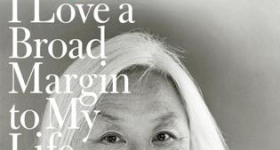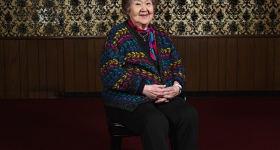Tom Serafino, age nine, tells his twin sister, Teagan, to
“Get out of my life!” Shortly afterward, Teagan falls into a pit and suffers a
debilitating brain injury. The boy who dared her to jump, Mario Guzman, panics
and runs away. Mario’s uncle, a transient immigrant worker called Shoe, discovers
the girl in the pit, along with his nephew’s football. He stashes the football
away to protect Mario and later allows himself to be implicated in the tragedy.
This is the series of events that launches Jon Pineda’s
debut novel, Apology, winner of the
2013 Milkweed National Fiction Prize. The novel explores the deeply felt
consequences that ripple around Teagan’s accident, for her brother Tom, Mario,
Shoe, and for the people connected with them. It is a beautiful and compelling
read.
The novel is told from multiple points of view: primarily
those of Tom, Mario, and Shoe--or his real name, Exequiel. Each character is
revealed as a complex, flawed human being. There were moments in this book that
were simply too heart-wrenching, yet you will find yourself reading on because of
the sympathetic portrayals of each character.
As the novel unfolds, we are shown scenes from the Serafino
and Guzman families as Tom and Mario grow up. The two boys progress through
middle school, graduate from high school, and become adults, meeting all the
usual milestones while Teagan--mentally and emotionally--remains a child.
Nights, Tom lay in bed and glanced over at
the B-52 that was forever grounded on his dresser. He could imagine, as the lawyer had posed the question that day, but
when he did now, parts of his life pulled away. Were swept up and scattered. He
thought hard for Teagan, too.
The future had become a distant,
unattainable target.
Sometimes he would hear her down the
hall. From her room, she would be yelling and, if she was especially upset,
beating one of her dolls against the wall.
In the morning, at breakfast, he
would find her at the table crying over the doll’s broken face. Inevitably,
their father would come home later in the evening with a wrapped present, and
she would never be able to guess what was inside. Until the paper was finally
torn back and her face grew bright, full of such honest surprise, it made Tom
catch his breath.
Jon Pineda
Pineda is the author of two collections of poetry, and Apology has a definite poetic aesthetic.
His prose is spare and precise, with a lovely, natural sense of rhythm and
pacing. The narrative is written in
short segments with intervals of white space; there is much that is left
unsaid, such that the writing never veers into sentimentality, even as it is
pregnant with emotion. In an age dominated by Hollywood over-writing (Bella
sobbed desperately), I found Pineda’s
spare narrative style very compelling. Rather than following a chronological
plot, the writing gradually reaches a core that is unwrapped layer by painful
layer, and it is in the white space--as in poetry--that the reader is allowed
to feel the raw complexity of emotion.
The anchor of the novel lies in the character of Shoe/Exequiel.
His fate is not a surprise, but the reckoning of his past is the heart of the
novel; these are the events, decisions, and regrets that formed him into a man
who sacrifices his life to protect his nephew and family. There are many
regrets for which Exequiel desires forgiveness, including leaving a girlfriend
and her young boy who had grown attached enough to him to call him, “Dad.”
The following passage takes place as Shoe/Exequiel considers
what to do after Teagan’s accident:
He realized then he
should have just left things in place. He should have climbed out of the pit
and run as best he could with his foot as it was and found a phone, any phone,
and called an ambulance directly. He wanted to go back in time and make a
different choice.
Or go back even
further.
Back to a time when
he was still a boy in another country. There were no hard questions, no actions
to take other than waking and surviving and laughing in between those moments.
He could barely see his nephew’s face. He knew his presence in this boy’s life
had compromised the situation.
Worse, still, was
having left the child. Not that he could have saved her himself, but he could
have been the one to save her. Maybe his life could be different if only he had
a way to get back to certain moments. He could still hear a boy from another
life saying, Check, and then laughter
when Shoe looked bewildered at the chessboard.
Both the Serafino and Guzman families are first generation
immigrants from the Philippines and dislocation is a constant theme running
through this narrative. From Exequiel’s transience to Tom’s pledging with a
white fraternity to Mario’s meticulous memorization of the human body, these
are characters who feel uncomfortable in their own skin. You will long for them -- as they long for
themselves -- to find home, somewhere to rest their weary heads and feel whole.
Apology may be a
first novel, but it suffers from none of the usual first novel flaws such as fuzzy
characterizations or hurried plots that feel like an editor rushed a manuscript
to publication. Apology feels like it was written on its own terms, on its own
time. Pineda is a writer who knows his craft and lives his characters; this is
evident from the first pages of his book. There was never a moment that felt
like a misstep or something that didn’t ring true.
There are no easy answers in Apology; there are many questions and much honest searching. What I
admired most is how the spare narrative allowed me, as the reader, to feel my
own feelings and respond as a human being. It is a rare book that connects me
to its characters so deeply.
Sabina
Chen reads, writes, and chases after her toddler










Comments